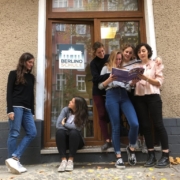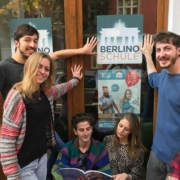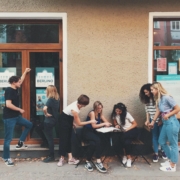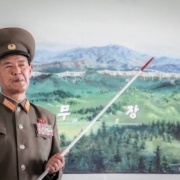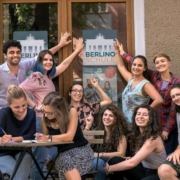New evening courses are starting at Berlino Schule – Fall 2018
You would rather attend a German course, but you don’t have time in the morning? Why don’t you join our German evening courses?
You are living in Berlin as thousands of people and you would like to learn German in order to start communicating with German native speakers, However, you don’t have time to attend classes in the morning. Don’t worry! Berlino Schule has got the right solution for you! In fact, Berlino Schule provides not only morning courses, but also afternoon and evening courses! So, what are you waiting for?
Berlino Schule
Berlino Schule has the best quality-price ratio: it can provide you with a proper language education, with qualified and German native teachers from just 4€/hour*. Don’t miss the opportunity to learn “this (not) impossible” language in an international environment!
Our German afternoon intensive courses
Intensive German courses at Berlino Schule last 4 weeks, for a total amount of 48 hours: classes take place 4 days a week (from Tuesday to Friday), 3 hours per day, from 14:45 to 17:15.
Our next German afternoon course
A1.1 27 NOVEMBER – 21 DECEMBER (Tue-Fri, 14:45-17:15)
Price: 192€ + 20€ registration fee (valid for one year)
Our German evening courses
Evening German courses are starting on 5th November at Berlino Schule and they will last 8 weeks, for a total amount of 48 hours: classes will take place 2 days a week (Mondays and Wednesdays or Tuesdays and Thursdays, or Mondays and Thursdays), 3 hours per day, from 19.15 to 21.40. Price: 240 + 20 euro registration fee (valid for one year).
Our next German evening courses
A1.1 6 NOVEMBER – 20 DECEMBER (Tue and Thu 19.15 – 21.40)
A1.2 5 NOVEMBER – 19 DECEMBER (Mon and Wed 19.15 – 21.40)
A2.1 5 NOVEMBER – 19 DECEMBER (Mon and Wed 19.15 – 21.40)
A2.2 6 NOVEMBER – 20 DECEMBER (Tue and Thu 19.15 – 21.40)
B2.2 5 NOVEMBER – 20 DECEMBER (Mon and Thu 19.15 – 21.40)
C1.1 5 NOVEMBER – 19 DECEMBER (Mon and Wed 19.15 – 21.40)
Price: 240€ + 20€ registration fee (valid for one year)
Skype/private classes
We want learning to be accessible to everyone, even if you don’t live in Germany or don’t have the time to come to our school. Our individual and Skype classes are made up for beginners (A1.1) and advanced learners (C1). An attendance certificate will be given to you at the end of your eLearning classes. If you want to take individual classes, no previous knowledge is required. Our flexible schedule will meet your specific linguistic needs and working hours. The attendance will be define with the school.The price is 28 € per hour (45 minutes).
Our teachers and method
The courses are held by teachers with certified experience in the language teaching field. Each class will be held in the target language so that students can learn more effectively. At the end of the course a certificate of attendance will be released on demand.
Info and registration
Send an email to info@berlinoschule.com or contact us at: 030 36465765 and we will reply with all the information you need. Check also our website to know more about Berlino Schule.
Where we are
Gryphiusstraße 23, 10245 Berlin
next stops: Samariterstraße, Ostkreuz

